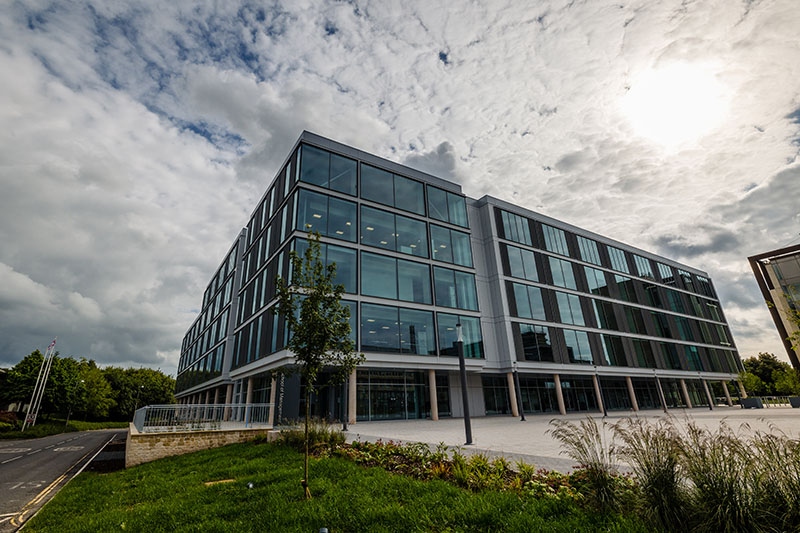Business programmes once taught the importance of maximising profit, with their only responsibility to make as much money for shareholders as possible. Now, leading MBA programmes are teaching global leaders the power – and profits – that can be achieved through a very different approach.
Corporate responsibility and sustainability have become key factors in today’s global business world. As society has become more aware of the environmental impact of business practices, companies have been forced to adapt to changing expectations and market demands.
Sustainable business practices, such as reducing carbon emissions, conserving natural resources, and promoting social responsibility, have become increasingly important considerations for companies seeking to maintain a competitive edge. As a result, more and more companies are embracing ESG (environmental, social, and governance) principles to guide their decision-making.
The role of business leaders in driving positive change has never been more important, and pursuing an MBA can be a key step towards developing the skills and knowledge needed to make a real difference in the world.
An MBA with impact
Professor Andrew Crane is the Director of the Centre for Business, Organisations, and Society at the University of Bath School of Management. He also leads the delivery of Responsible Business on the Bath Executive MBA programme, helping professionals to develop the skills and knowledge needed to navigate sustainability challenges.
“There are so many challenges facing the world with everything from climate change and inequality to biodiversity. Business has a role in contributing to those problems, but also for solving them,” he explains.
“Contradiction in organisational priorities can be difficult for business leaders. The MBA programme can be a powerful tool to empower and liberate them to do something positive and be the changemakers in their organisations,” he adds.

The Bath MBA programmes are designed to provide students not only with an awareness of ESG issues within business, but also to equip them with the practical skills needed to tackle them. Teaching is underpinned by a deep focus on embedding sustainability and responsibility throughout both teaching and research.
“Students leave Bath, not only with a passion to enact change, but with the tools needed to effectively execute positive change throughout the duration of their management careers,” he continues.
“We try to instil the conversation of social responsibility and concern for social impact across the breadth of business, from finance and marketing to operations and HR practices. We tackle the challenges in these areas and then empower students to bring this conversation into their organisations and to have the right literacy to do so. They have the language but now they also the skills and knowledge to become as close as possible to an expert.”
Professor Crane adds: “We want our graduates to be leading employers who know how to achieve impact in their communities.”
Testimony to the School of Management’s commitment to ESG, the university was named as a top 10 global business school in the Corporate Knights MBA rankings, delivering one of the world’s most sustainable MBA programs and demonstrating a growing commitment to infuse sustainability throughout.
“The Corporate Knights ranking focuses on the sustainability credentials of the school and how they incorporate sustainability into their teaching and research,” explains Professor Crane.
“We have consistently been in the top 10 for a number of years and that’s a testament to the deep embedding of sustainability into the School of Management.”
Creating positive change for the future
Bath MBA graduate, Peter Davies, embarked on an internship with Good Energy during his MBA with University of Bath School of Management, enabling him to develop his expertise within the sustainability industry. The opportunity saw him secure a full-time position with the company working within corporate development.
Being new to the sustainability sector, Peter explains that it’s good to know that the work he is doing positively contributes to society.
“Whether you’re looking to work within the sector of sustainability or not, sustainability is important in all aspects of management,” he says.
“Sustainability is driven by responsible leaders. Teams that really value sustainability can create and implement change that can lead a company to make amazing differences and impacts on the world.”
MBA programmes play a critical role in preparing students for tackling the sustainability challenges that they might encounter throughout their career, and teaching them to think critically about the wider impact of the work that they do.
Executive MBA student at the University of Bath, Laurent Perge, is working alongside his MBA studies to engage and support local businesses through the SET Squared programme, an initiative that works with the University of Bath to support businesses and help them grow sustainably.

“I have embraced a career in sustainability and to be able to make good changes for the people of the planet,” he says.
“The EMBA programme has helped me to reflect on my career and my leadership style. I have much more awareness about business, but also about how I lead people and how I apply the principles of good leadership to my role.”
Sustainability is good for business
A report by the United Nations Global Compact states: “More must be done by businesses globally to accelerate corporate sustainability and responsible business practice.” (UN Global Compact Strategy, 2021)
The statistics are overwhelmingly convincing too. Deloitte report that 49% of companies are developing new climate-friendly products or services; 44% are relocating or updating facilities to make them more resistant to climate impacts and an incredible 37% of companies are linking senior leader’s compensation to environmental sustainability performance.
Companies that prioritise sustainability and corporate responsibility are not only doing their part for the planet and society, but also improving their financial performance, operational stability and reputation.
There has never been a better time to pursue an MBA programme that brings these issues into sharper focus and equips leaders with the skills and knowledge to face the challenges ahead. The Bath MBA is a great place to start your journey towards becoming a leader who can make positive impacts and amazing differences in the world.
If you’re interested in finding out more about The Bath MBA, contact Becky Gallagher, Head of Admissions & Recruitment, at mbaapps@bath.ac.uk








